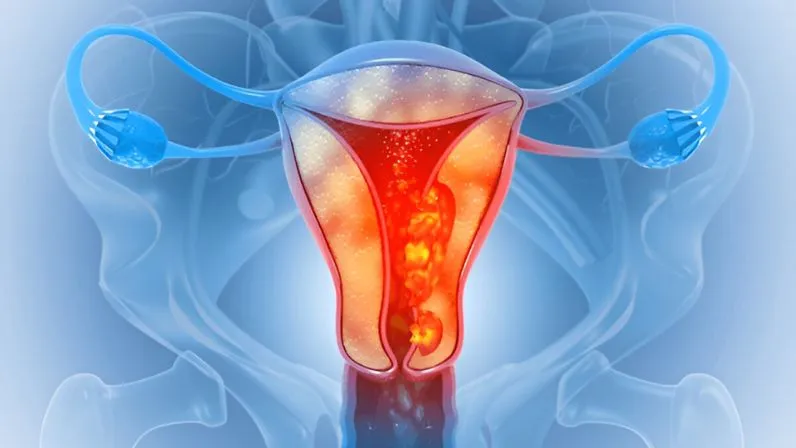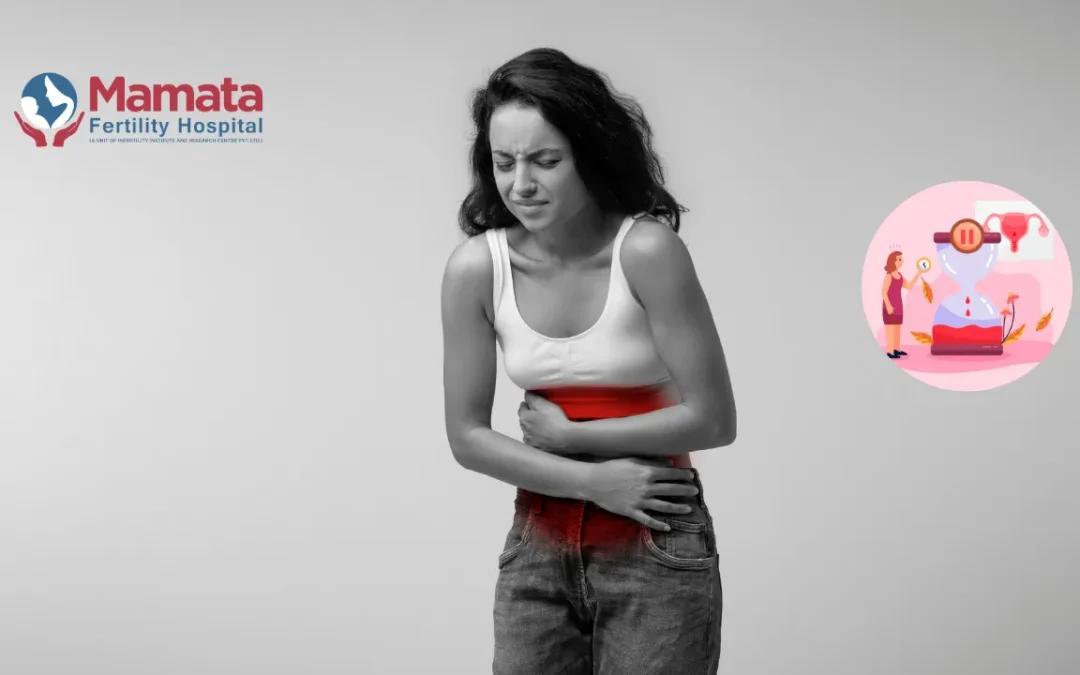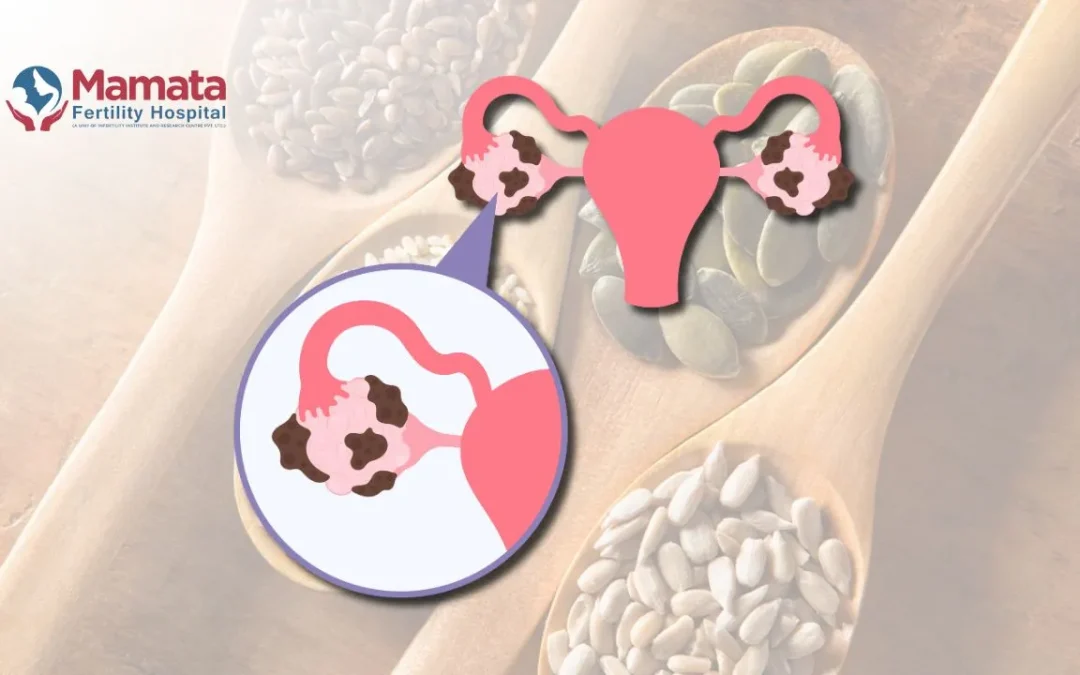Uterine Cancer
At Mamata Fertility Hospital in Secunderabad, we are committed to helping women take charge of their health by providing clear and compassionate care. One of the conditions we focus on is uterine cancer, a disease that affects the uterus, a crucial part of the female reproductive system.
If you or a loved one has concerns about uterine cancer, this guide is here to help you understand what it is, its causes, symptoms, and how it can be treated.
For Appointments, Please Call:
More On Uterine Cancer
What is Uterine Cancer?
The uterus, or womb, is a pear-shaped organ where a baby grows during pregnancy. Uterine cancer happens when cells in the uterus grow in an uncontrolled way, forming a tumor. It’s like weeds growing in a garden—they crowd out healthy plants and can cause problems if not removed.
There are two main types of uterine cancer:
- Endometrial Cancer: This is the most common type and starts in the lining of the uterus (endometrium).
- Uterine Sarcoma: A rarer form that affects the muscles or other tissues in the uterus.
- Early detection of uterine cancer increases the chances of successful treatment. That’s why it’s important to recognize the signs and seek medical care if something feels off.

Causes and Risk Factors
While the exact cause of uterine cancer is not always clear, certain risk factors can increase the likelihood of developing this disease.
Common Risk Factors
-
- Hormonal Imbalances: Excess estrogen without enough progesterone can increase the risk, especially during menopause.
- Age: Uterine cancer is more common in women over 50.
- Obesity: Extra fat tissue increases estrogen levels, which may lead to abnormal cell growth in the uterus.
- Diabetes: Women with diabetes are at a slightly higher risk.
- Family History: If someone in your family has had uterine cancer or a related condition, your risk may be higher.
- Polycystic Ovary Syndrome (PCOS): This condition often leads to hormone imbalances.
- Radiation Therapy: Previous treatment with pelvic radiation may increase the risk of developing uterine cancer.
Less Common Risk Factors
While certain risk factors for uterine cancer are more obvious, such as hormonal imbalances or age, there are less common ones that still play a significant role. Understanding the science behind these factors can make them easier to identify and manage.
1. Tamoxifen Use
Tamoxifen is a medication often prescribed to prevent or treat breast cancer because it blocks estrogen’s effect on breast tissue. However, in the uterus, tamoxifen can act like estrogen. Imagine estrogen as a signal that tells cells to grow and multiply. When tamoxifen mimics this signal in the uterus, it can sometimes encourage the overgrowth of cells, increasing the risk of cancer.
Example: Think of a security system where one door locks (breast tissue), but another accidentally stays open (uterus), allowing things to slip through.
2. Pelvic Radiation Therapy
Radiation therapy is used to kill cancer cells, but the treatment can also damage healthy tissues. When the pelvic area is exposed to high doses of radiation, the DNA in the cells of the uterus can change. Over time, these changes may cause cells to grow abnormally and lead to cancer.
Analogy: Think of radiation as pruning a tree. While most branches are trimmed properly, occasionally, a cut might damage healthy parts, leaving them vulnerable to disease over time.
3. Other Cancers
Having a history of cancers like breast or ovarian cancer can increase uterine cancer risk, often due to shared genetic traits. For example, mutations in genes like BRCA (commonly linked to breast or ovarian cancer) can also make uterine cells more susceptible to developing into cancer.
Example: It’s like the same faulty wiring affecting multiple rooms in a house—you may fix one room, but the underlying issue could cause problems elsewhere.
Understanding these risks arms you with the knowledge to make informed decisions about your health. If you’ve been exposed to any of these factors, regular check-ups with a healthcare provider can ensure early detection and prompt care, giving you peace of mind.
Note: Experiencing one or more of these factors doesn’t mean you will get uterine cancer. Regular screenings and early treatments can greatly reduce the risks.
Symptoms and Diagnosis
The following symptoms can be early signs of uterine cancer. It is important to reach out to a doctor if you notice:
-
- Abnormal Vaginal Bleeding: Bleeding between periods or after menopause is the most common symptom.
- Pelvic Pain or Pressure: Persistent pain or a feeling of heaviness in your lower abdomen.
- Unusual Discharge: Watery or bloody discharge that doesn’t seem normal.
- Pain During Sex: A sign that something may not be right in your reproductive organs.
Diagnostic Process
At Mamata Fertility Hospital, we use a variety of methods to diagnose uterine cancer accurately. These include:
-
- Medical History Review: Understanding your symptoms, lifestyle, and family history.
- Pelvic Exam: A physical examination to check for abnormalities.
- Transvaginal Ultrasound: Provides clear images of your uterus to detect irregularities.
- Endometrial Biopsy: Taking a small sample of uterine lining for further testing.
- Hysteroscopy: Using a small camera to look inside your uterus.
- Imaging Tests: CT scans, MRIs, or chest X-rays may be used to check if cancer has spread.
Early diagnosis is key to successful treatment. If you notice abnormal bleeding or other symptoms, don’t hesitate to seek medical help.
Impact on Health and Daily Life
Uterine cancer doesn’t just affect your physical health; it touches every area of your life. Understanding these impacts can help you prepare and manage them.
Physical Health
Untreated uterine cancer can spread to other parts of your body, including lymph nodes, lungs, or liver. This process, called metastasis, makes the disease harder to treat. Additionally, other conditions like anemia (due to prolonged bleeding) can drain your energy and strength.
Emotional Well-being
Receiving a cancer diagnosis can be overwhelming. Feelings of fear, anxiety, or even grief are natural reactions. Many women also worry about how cancer and its treatments might affect their fertility or sexual health, which can add to the emotional toll.
Daily Challenges
Treatments such as surgery, chemotherapy, or radiation may require adjustments in your routine. Side effects like fatigue or nausea might make it harder to work or enjoy daily activities.
At Mamata Fertility Hospital, we provide compassionate care and support every step of the way, so you don’t have to face these challenges alone.
Treatment and Management Options
Treatment depends on factors like the type of uterine cancer, its stage, and your overall health. At Mamata Fertility Hospital, we offer a range of effective treatments tailored to each patient.
1. Surgery
The most common treatment for uterine cancer is a hysterectomy (removal of the uterus). Some women may also need additional surgery to remove ovaries, fallopian tubes, or nearby lymph nodes if cancer has spread.
2. Radiation Therapy
High-energy X-rays are used to kill cancer cells, either before surgery to reduce tumor size or after surgery to destroy remaining cells.
3. Hormone Therapy
Used for cases where the cancer is responsive to hormones, this treatment involves either blocking hormones or reducing hormone levels in the body.
4. Chemotherapy
Drugs are used to destroy cancer cells. This is often recommended if cancer has spread beyond the uterus.
5. Targeted Therapy
More advanced treatments focus on the genetic makeup of cancer cells, providing a highly personalized approach.
Your treatment plan will be discussed in detail with our experts, ensuring you understand your options and feel confident about your care.
Lifestyle and Dietary Recommendations
Living with or recovering from uterine cancer requires both physical and emotional adjustments. Here are some tips for maintaining health and well-being.
Self-Care
-
- Healthy Diet: Include plenty of fruits, vegetables, lean proteins, and whole grains. Foods high in antioxidants help boost your immune system during cancer treatment.
- Gentle Exercise: Activities like walking or yoga can improve energy levels and mood.
- Rest: Prioritize sleep and relaxation, especially during treatment.
Emotional Support
-
- Join support groups to connect with other women facing similar challenges.
- Talk openly with family or friends about how you feel.
- Consider speaking to a counselor if you’re feeling overwhelmed.
Follow-Up Care
After treatment, regular check-ups are essential to monitor your recovery and address any side effects or new concerns.
Frequently Asked Questions (FAQs)
1. How is uterine cancer different from cervical cancer?
Uterine cancer starts in the uterus, while cervical cancer begins in the cervix. They have different causes, symptoms, and treatment methods.
2. Is uterine cancer preventable?
While there’s no sure way to prevent it, managing risk factors like obesity, diabetes, and hormonal imbalances may help reduce your chances.
3. Can uterine cancer affect younger women?
Yes, although it’s more common after menopause, younger women can also develop uterine cancer, especially if they have risk factors like PCOS or obesity.
4. Will I need a hysterectomy if diagnosed with uterine cancer?
Not all cases require a hysterectomy. Your doctor will recommend the best treatment based on the stage and type of cancer.
5. Can uterine cancer come back after treatment?
Recurrent uterine cancer is possible, which is why follow-up care is critical. Regular monitoring can help catch and manage it early.
At Mamata Fertility Hospital in Secunderabad, you’re not just a patient—you’re part of our family.
If you’re worried about uterine cancer or have questions about your symptoms, don’t hesitate to contact our team. We’re here to provide expert care with compassion and confidence, helping you achieve the best possible outcomes for your health.
Reviewd By

Dr Aarti Deenadayal Tolani
Clinical Director, Scientific In-Charge & Fertility Consultant
MBBS, MS ( OBGYN), FICOG
Expert in Reproductive Endocrinology, Infertility, Advanced Gynaec Ultrasound, and Faculty at Mamata Fertility Hospital.
Blogs and Articles

How to Cure Irregular Periods in Teenage Girls? Causes & Treatments
Irregular periods in teenage girls are common due to hormonal changes, stress, and lifestyle factors. Learn about the causes, natural remedies, and when to seek medical advice.

Seed Cycling for PCOS: Is It Worth It?
Seed cycling may support PCOS naturally, but lacks strong evidence. Use it as a complement to medical care for best results.

Foods to Regulate Periods Naturally
Learn how natural foods like leafy greens, seeds, and spices can help balance hormones, regulate periods, and support better menstrual health.
RELATED CONDITIONS
- Ovarian Cancer
- Fallopian Tube Cancer
- Endometrial Cancers
- Breast Cancer
- When to Consult Infertility Specialist?

